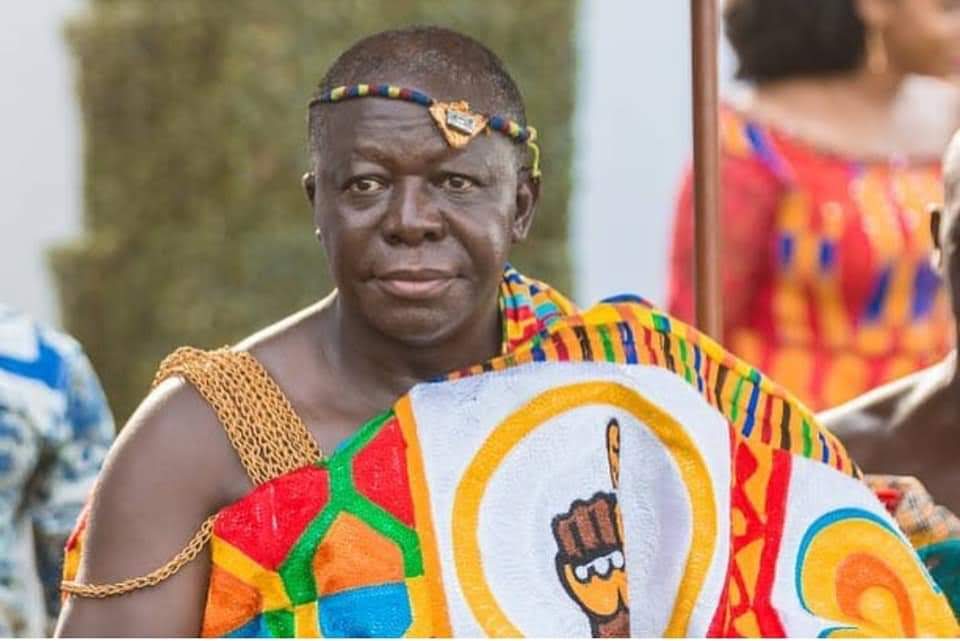It has been 20 years of visionary and impactful leadership since the Asantehene, Otumfuo Osei Tutu II, ascended the throne as the 16th occupant of the Golden Stool. For two decades, the Asantehene has demonstrated exemplary leadership that has been hailed not only in Ghana but on the international stage as well.
Following his enthronement as the overlord of the Asante Kingdom in 1999, Otumfuo set up an Educational Endowment Fund, which has since impacted the lives of many school children within the Kingdom and beyond. More than 300,000 students have received full scholarship from basic to university level as at April, this year, when the Asante Monarch celebrated his 20th Anniversary on the throne.
A total of 276,224 others had also received financial support in the form of bursaries, part payment of fees, accommodation, stationary, clothing and transportation. Then came the Otumfuo Osei Tutu II Charity Foundation, which sought to improve the lives of Ghanaians by implementing the ideals, values and visions of the King. Aside initiatives targeting the provision of infrastructure in the areas of technology, healthcare and water, the foundation also works towards enhancing access to quality education through the rehabilitation and provision of state-of-the-art education infrastructure.
He has instituted awards scheme to honour teachers and educational workers, especially those in very deprived communities, who work hard to improve education delivery in their communities. The Asante King has also earned remarkable respect for the significant role he played in the roadmap to broker peace in the protracted Dagbon chieftaincy feud, which, for many years, claimed dozens of lives. As the leader of the Committee of Eminent Chiefs put together by Former President John Agyekum Kuffour to find a lasting solution to the longstanding conflict, Otumfuo Osei Tutu showed another mark of a great leader when he employed traditional diplomacy and broader consultation to bring the age-long dispute to a successful end.
Just recently, students of the Kwame Nkrumah University of Science and Technology (KNUST) embarked on a violent demonstration, which led to the closure of the University after they caused extensive damage to property. All efforts to reopen the University proved futile following a standoff between the Government and the University Teachers Association of Ghana (UTAG) over steps taken to reopen the University.
It took the sage intervention of Otumfuo Osei Tutu II to bring finality to the impasse between the Government and UTAG. This paved the way for the students to return to school after staying home for one month. By virtue of being the Vice Chancellor of the University, he set up a three-man committee to look into the issues that led to the disturbances to avert future recurrence. These are a few of many leadership qualities exhibited by the Asantehene, which have impacted the lives of thousands of Ghanaians over the years.
Refreshingly, just after celebrating his 20th Anniversary on the throne, the Asante King has joined global efforts aimed at mitigating the effects of climate change across the globe by initiating another landmark project set to benefit even generations yet unborn. The King has rolled out a comprehensive programme to plant 25 million trees around river bodies in the Ashanti Kingdom for the next five years. This, according to him, is his little contribution towards the global fight against climate change, which continues to pose a serious threat to human health across the world.
The project, which is a partnership between the King and the Oheneba Poku Foundation, specialising in corporate social responsibility, would be implemented in two phases. The first phase, dubbed: “Lake Bosomtwe Landscape Restoration Project,” seeks to plant 2.5 million trees around the Lake Bosomtwe Basin. The Lake, which is Ghana’s only natural lake, has been designated a biosphere reserve site by the United Nations Educational, Scientific and Cultural Organization (UNESCO) to promote a healthy balance between biodiversity conservation and its sustainable use. A Tripartite Agreement has been signed between UNESCO, the Ministry of Water Resources, Works and Housing and Otumfuo Osei Tutu II, custodian of the lake to implement a sustainable management plan for the entire Lake Bosomtwe Biosphere Reserve.
The Oheneba Poku Foundation, with the support of the Forestry Commission (FC), Water Resources Commission (WRC), Environmental Protection Agency (EPA) and other allied state agencies would lead the implementation process. Increasing afforestation and reforestation in degraded forest areas, improving participatory forest management as well as climate resilience and biomass production would be the main focus of the project. This the Otumfuo was determined to achieve having pledged his commitment to mobilising traditional leaders, the private sector, academia, civil society organisations and the youth to contribute their quota towards the attainment of the Sustainable Development Goals (SDGs) by 2030.
The expectation is that the provision of ecosystem services such as quality air, carbon sequestration, local climate regulation, soil erosion control, and watershed protection would improve and enhance longevity and quality of water bodies. Additionally, the future of the Lake Bosomtwe Biosphere Reserve would bring together communities on conservation, sustainable use and management of natural resources as well as innovative socio-economic development strategies under a green economy.
Consequently, a body known as the Bosomtwe Community Resources Management Areas (CREMA), made up of indigenes in the various communities dotted around the lake has been set up to undertake the planting exercise. CREMA would work in close collaboration with the traditional rulers of the 30 communities within the project area. Priority would be given to buffer areas that host sacred groves to preserve the sanctity of those areas.
Another important aspect of the tree planting that would be considered under the project is pest and disease monitoring/control. With the help of the Forestry Research Institute of Ghana of the Centre for Scientific and Industrial Research (CSIR-FORIG), the plantations would be regularly screened for pest and disease infestations to prevent them from being destroyed. As part of efforts to encourage active participation in the project by the indigenes, a scholarship scheme to reward farmers who demonstrate a high level of commitment to the project, would be instituted.
Under the special farmer incentive scheme, wards of farmers who plant and manage an average of 5,000 trees would be given educational scholarship up to the junior high school level. Additionally, farmers who plant the seedlings on their own farms would also receive free agricultural extension services, improved seeds, organic fertilizers and market access for their produce. All major river bodies in the Ashanti Kingdom would also be protected under the second phase of the project. Most of these rivers serve as sources of drinking water for thousands of people yet they continue to dwindle in size due to negative human activities, such as illegal logging of trees in their catchment areas as well as wanton pollution. It is for these reasons that the depleted stock of trees on river banks are going to be replenished under the project.
The Oheneba Poku Foundation would lead a campaign to introduce farmers in the project areas to climate-smart agriculture to ensure sustainable agricultural productivity while building resilience to climate change.
They would be educated on how to conserve the top soil such that it would not be affected by erosion in order to maintain the nutrients and micro-organisms in the soil for higher yields.
The Asantehene, who is determined to restore the forest cover of the Kingdom to its glorious past, recently charged the Forestry Commission to play an active role in the implementation of the project when the Chief Executive led a team of officials of the Commission to pay a courtesy call on him at the Manhyia Palace.
The Asantehene described the project as “very dear” to his heart and pledged his commitment to leading the crusade for the restoration of the green environment, which was synonymous with his Kingdom in the past. His royal highness, the Asantehene, is upbeat about the initiative’s significant contribution to the fight against climate change globally.
He has, consequently, sounded a strong note of caution to any chief within his jurisdiction found culpable of selling lands designated as buffer areas of river bodies, for their private gains. He would not countenance any such behaviour from chiefs who are supposed to safeguard the well-being of their subjects at all times. Otumfuo Osei Tutu has shown traditional leadership in the global climate change mitigation efforts by leading the national crusade and encouraging other traditional rulers and local people to respond by planting trees to preserve water bodies and enhance carbon sequestration.
Climate change mitigation is a collective effort of all and it is important for all citizens of Asanteman in particular, and Ghana in general, to buy into the idea and support the noble cause, for the death of the last tree will mark the end of mankind.


